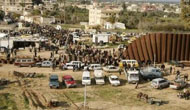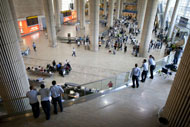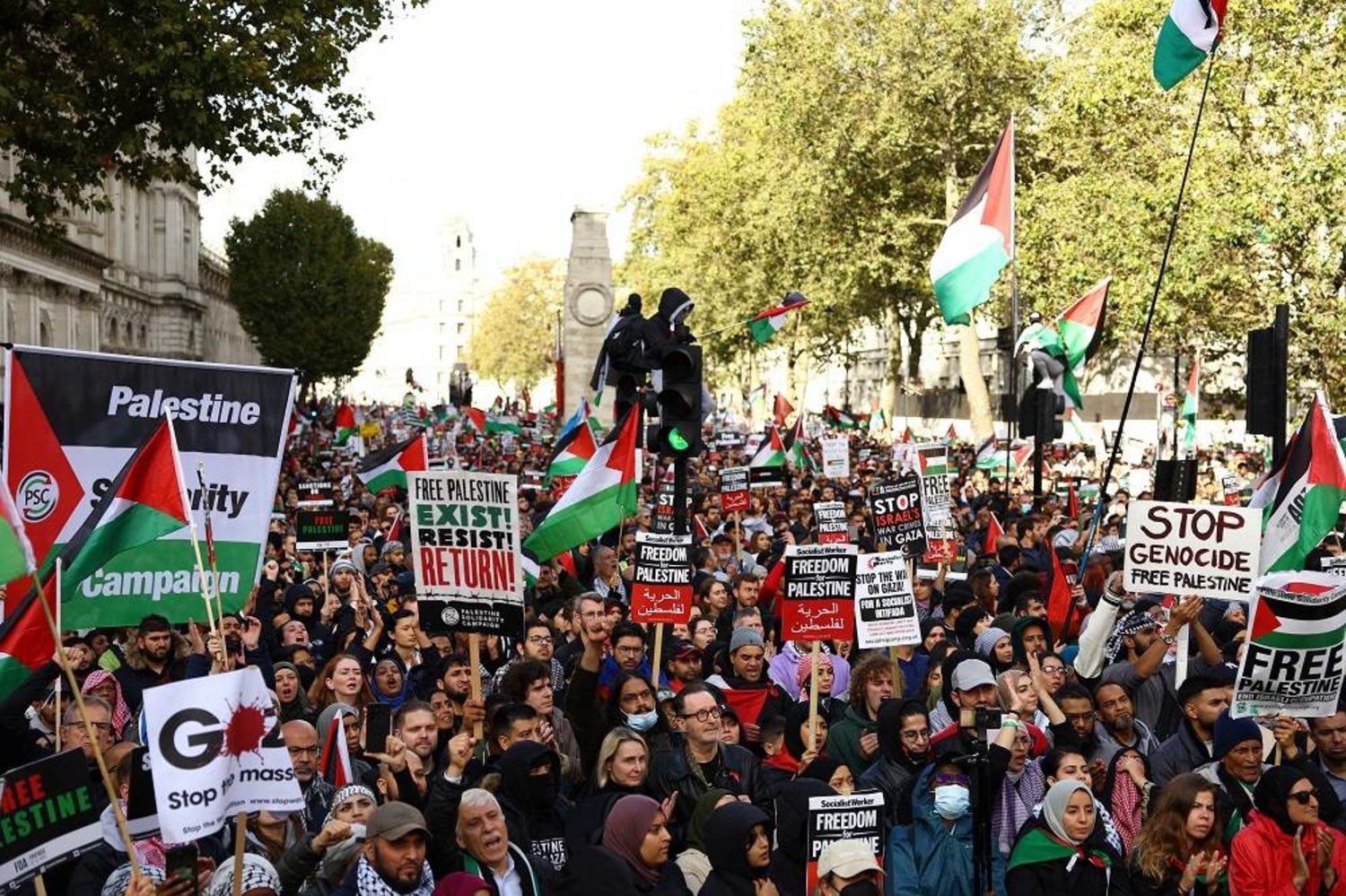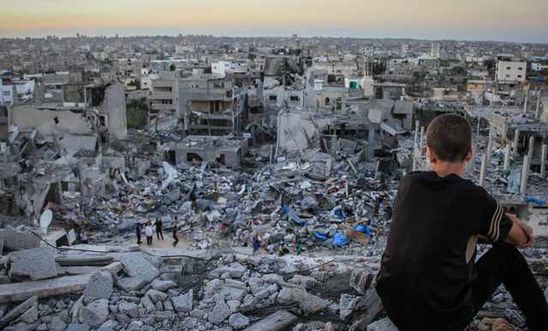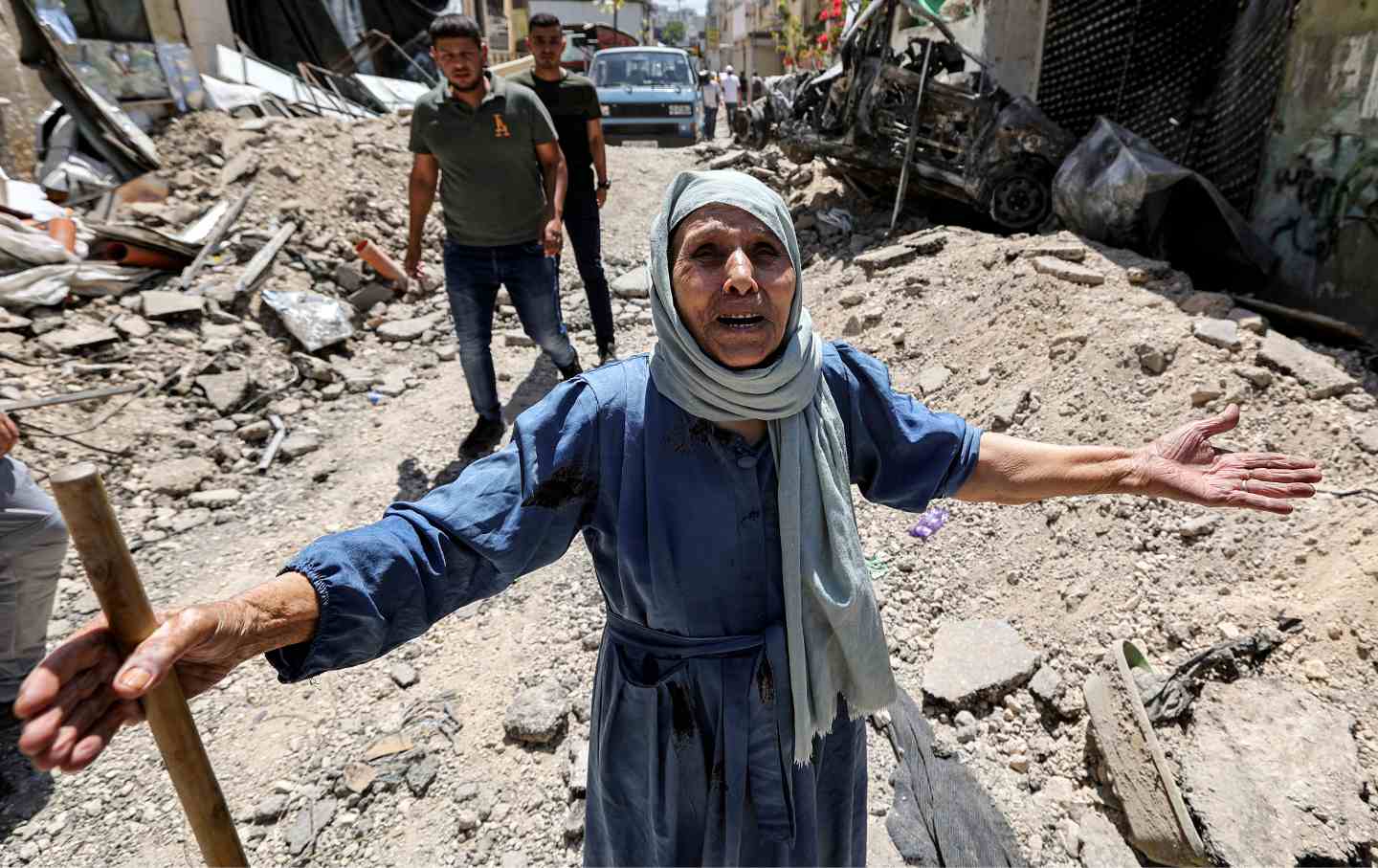Apparently, the Gazans have had enough. This morning, after two days of demonstrating at the Rafah border crossing between the Gaza Strip and Egypt, armed Palestinians dynamited several holes in the barrier and scores of angry and beleaguered Gazan citizens surged into Egyptian territory to stock up on basic supplies.
Citizens brought back food, fuel, clothes and even cigarettes after months of a brutal Israeli-imposed siege and two days of total darkness. On January 17, Israel refused to allow fuel into the Strip, forcing Gaza’s main power plant to shut down. The majority of Gaza’s 1.5 million residents were plunged into darkness during two of the coldest days of the year.
The suffering endured by Gaza’s residents is obvious – Israel has clamped a tight siege on the Strip ever since Hamas overtook the 360 square kilometer territory last June, only opening the border crossings intermittently to allow basic necessities through. Israeli military operations have been ongoing, escalating at times while ebbing at others. Since January 15, 39 Gazans have been killed by Israeli operations, many of these unarmed civilians.
Israel claims the fuel cut was one more tactic to halt the Palestinian rockets being fired into Israeli territory, calling on citizens to reject Hamas, on which it pinned all of the peoples’ woes. The power cut inevitably led to bakeries closing their doors and hospitals running on generators, emergency rooms only accepting the direst of cases. The second day of the sanctions, Israel took its punishment up a notch, barring any laptop computers or even mini devices such as MP3s into Gaza. Schools were obviously disrupted as were businesses and any food left on the shop shelves skyrocketed in price.
So, it is no surprise that Wednesday morning hundreds of residents stormed the Rafah Crossing and forced their way into Egypt. Still, while this may solve the problem for a few days, the real question is what will happen to Gaza in the long run.
The good news is that not all the world is completely indifferent to the plight of the Gaza Strip. Following the fuel cut and the subsequent electricity blackout, demonstrations in solidarity with the Palestinians of Gaza broke out both in the Palestinian territories, the Arab world and elsewhere. Thousands of people took to the streets in Mauritania, Denmark, and Lebanon among others, demanding that Israel lift the siege. Under international pressure, Israel temporarily reopened the border to allow a small amount of fuel back into the Strip to restart the plant, but warning that the sanctions were still very much in place.
Israel’s real intentions in Gaza are nonetheless mind-boggling. It is highly unlikely that Israel will literally starve the people of Gaza or annihilate them completely through military action. Several Israeli leaders, including late Israeli Prime Minister Yitzhak Rabin, have voiced their disdain for Gaza and for their utter lack of interest in it. Just before Rabin signed the Oslo Accords with late President Yasser Arafat, he was famously quoted as saying he wished, “Gaza would just sink into the sea.”
Since that is unlikely to happen, then what does Israel really want from Gaza? Its leaders proclaim that Hamas is the menace and must ultimately be uprooted. But this was not always the case, Hamas only becoming a force to be reckoned with after it overtook the Strip in June, 2007. Still, Israel cannot seem to release its claws from this impoverished piece of land.
It is not as if Jewish settlements were the issue. Unlike the West Bank, known as Judea and Samaria in Israeli jargon, the Gaza Strip bears no deep biblical significance to the Jewish state. Neither is it home to Jerusalem, which Israel claims as their eternal capital. Israel has made it clear it will not relinquish many of the illegal settlements built on Palestinian land in the West Bank no matter how many international resolutions are issued against them or how many peace agreements signed.
In the Gaza Strip, Israel even dismantled its settlements, feigning a gesture towards peace. Truth be told, this was a breath of fresh air for the Gazans. There were no more belligerent settlers squatting on their land, devouring their water supply and making their lives overall, extremely difficult. Still, the fact remained that Israel’s iron grip on Gaza was as strong as ever, with its complete control over borders and the self-reserved right to bomb, invade, arrest or kill anyone and anything whenever it deemed necessary.
Still, even if Israel’s argument of utilizing sanctions as a means of curbing the Palestinians’ homemade rockets is assumed, it quickly falls through as well. Israel is no amateur in conflict, its own creation being the result of one. So, there is no way Israel does not understand that the more an occupying power pushes, prods and oppresses, the more its less fortunate opponent will push back.. Who more appropriate to launch rockets or even wrap themselves in an explosive belt than someone with nothing to lose?
The only logical explanation for Israel’s actions is that it wants the Palestinians to turn on their own people and blame Hamas, or any other party that constitutes a thorn in Israel’s side, for the hardships they are enduring, even if these very hardships are directly instigated by Israel. If they succeed and create a dismembered people who lash out at one another and who have virtually forgotten the cause they are fighting for, then any future negotiations over a final settlement will be like putty in their hands. Without a strong and unified Palestinian leadership, Israel will be able to dictate a solution to its liking, because even Israel knows that eventually a solution must be found. Israel cannot maintain an aggressive military occupation, neither financially nor politically in terms of its position in the international community.
So, Israel hopes it can beat the spirit out of the Gaza Strip and divide its people. By the looks of the Palestinians’ internal situation, it has not done a bad job. The unprecedented infighting between Hamas and Fateh has taken its toll, both in terms of lives and in internal politics. While the West Bank government has immersed itself in peace dealings with the United States and Israel, it has no jurisdiction over Gaza, which is supposedly part of any future Palestinian state. At the same time, Hamas is hell-bent on keeping a tight hold on Gaza, whatever the consequences.
If indeed, this is Israel’s intention, then we Palestinians are losing the game. Israel has proven how relentless it can be and has no qualms about invading Gaza or making its residents’ lives unbearable. It is up to our leaders everywhere to make the difference – to pressure the Arab regimes and the international community into forcing Israel to lift the siege. Right now, this is our number one priority. After that, our leaders must ensure that when we go to the negotiating table, we go with one strong and united voice.
Joharah Baker is a Writer for the Media and Information Programme at the Palestinian Initiative for the Promotion of Global Dialogue and Democracy (MIFTAH). She can be contacted at mip@miftah.org.




